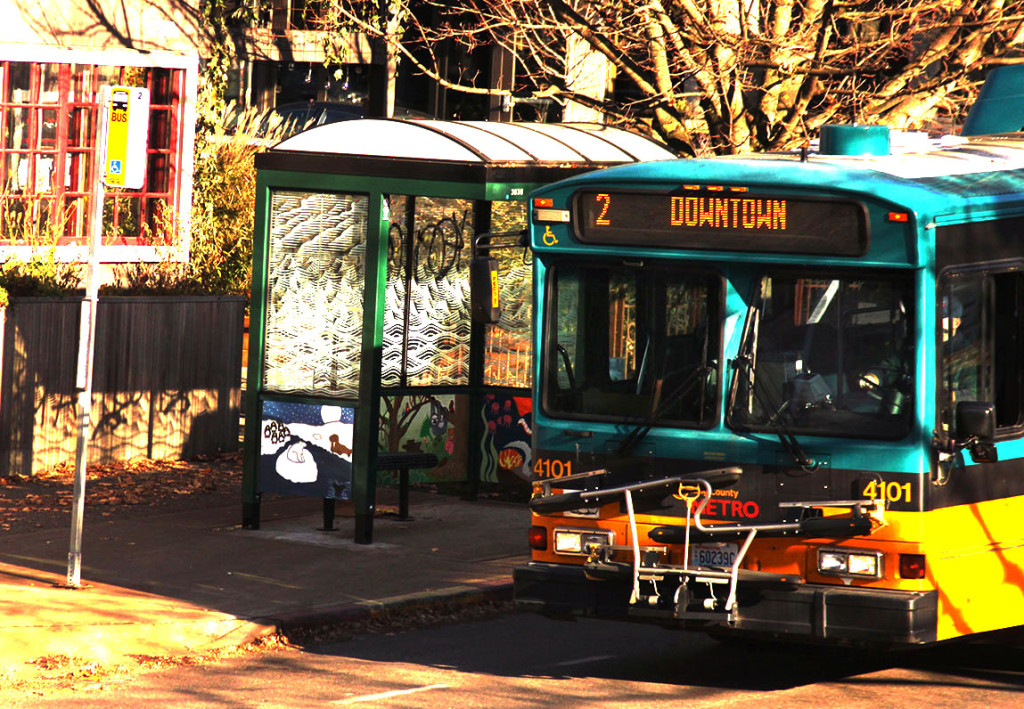Budget cuts continue to take their toll at Seattle University, this time affecting the accessibility of public transportation for students.
Although the rumor that Seattle U’s Campus Assistance Center will no longer be offering ORCA passes for students is false, there still will be a shift in the process of obtaining ORCA cards.
“There is going to be a change with the bus passes probably starting winter quarter, but we just don’t know what it’s going to be yet,” said sophomore Leela Sabaratnam, a student employee at the CAC.
The CAC conducted surveys to receive feedback on what students would be willing to pay for passes and what options they would prefer in light of recent budget cuts. The ramifications of the potential changes remain to be seen, but there is a high chance that students will be charged to borrow these passes.
“I think [this] will mostly be received negatively, since students already complain about the price of tuition,” said sophomore Afina Walton. “Now they will wonder why it’s still so high even when passes are not being handed out for free.”
Seattle U is not the only institution suffering from the effects of budget cuts: county budget cuts are also impacting Seattle bus services. The budget to be adopted throughout 2015 and 2016 by King County Metro reflects numerous additional cuts to the system. Their administration has yet to find a source of long-term funding to maintain past services.
Starting in late September, as a result of the expiration of temporary funding, several modifications to the bus service were implemented, those of which included 28 deleted bus routes and 18 revised routes with reduced service.
All these reductions were considered necessary because of the lack of revenue for the past several years. Despite tremendous attempts at retaining past services, bus fare has been raised and other expenditures have been eliminated.
Metro is looking to preserve all the services it once offered, pushing for changes such as lower fuel costs to assist in their financial need. Although Seattle voters pushed for further funding for transit service earlier this month, the current budget does not allow for growth in response to the city’s demand.
Ridership among students is also steadily increasing. If free ORCA cards from the CAC are no longer an option next quarter, there are existing alternatives for students to choose from, such as purchasing an ORCA transit pass online through the university’s website for $100 per quarter.
Student commuters also have the option of using their own cars to commute to school and of procuring parking permits offered by the public safety office, particularly commuters. Residents and day commuters pay $210 per quarter for parking permits, while evening commuters pay $110 per quarter. Temporary parking rates are also available. Offered for one, two, or three days a week, the cost for parking is $58, $115, and $174 per quarter, respectively.
Senior Charlie Chittenden believes that transportation should be a vital part of our student body’s budget.
“Numerous students rely heavily on the compensated bus transportation system Seattle University has provided over the years,” Chittenden said. “It is these students who will experience the brunt of this ill-minded change.”
In the broader scope of this issue, various students are frustrated with the lack of information surrounding these incoming changes.
“I am all about budget transparency,” said sophomore Jose Chalit. “I am not necessarily advocating that everything should be free, but it is extremely convoluted when you don’t really know where the money is going to.”
SGSU has been putting a great deal of effort into being transparent about these budget changes, and are working towards releasing an official statement through the administration for the students. In the meantime, representative assemblies are public for any students to sit in on, and the minutes for these meetings are available online at sgseattleuniversity.tumblr.com.
Financial limitations and accessibility appear to be the main cause for concern regarding these future transformations. But for students like sophomore Chris Wysocki, these cuts to the transportation system just may be preferable to cuts made in other areas.
“It makes sense to start charging for bus passes,” said Wysocki. “At first glance it might look like a bad decision, but we know cuts have to be made. It is better for it to be in a non-essential item than in something as important as public safety.”
The decision regarding budget cuts and how they might impact ORCA pass availability and transportation services is yet to be announced.
The editor may be reached at news@su-spectator.com









